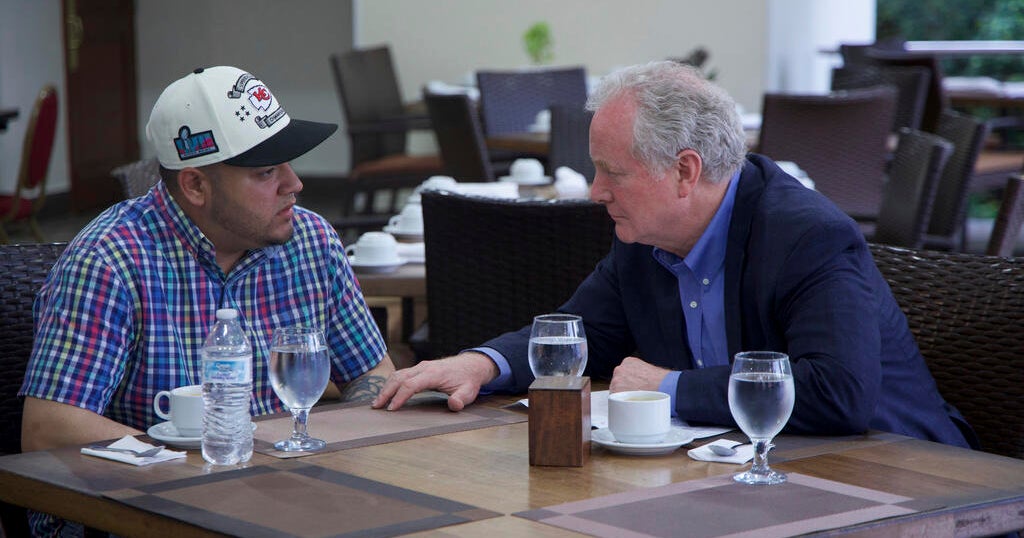The controversy surrounding the alleged mistreatment of Kilmar Abrego Garcia in El Salvador has reignited heated debates over the Trump administration’s immigration policies. In a recent statement, President Nayib Bukele strongly denied claims made by Abrego Garcia regarding psychological torture and severe beatings during his incarceration. These allegations come amidst ongoing legal battles that have drawn significant media attention and raised questions about human rights practices in the country.
| Article Subheadings |
|---|
| 1) Statement from President Bukele |
| 2) Abrego Garcia’s Allegations |
| 3) Conditions in El Salvador’s CECOT |
| 4) Background on Kilmar Abrego Garcia |
| 5) Legal Proceedings and Current Status |
Statement from President Bukele
In a post shared on the social media platform X, President Nayib Bukele directly addressed the allegations made by Kilmar Abrego Garcia. Bukele asserted that “he wasn’t tortured, nor did he lose weight,” sharing images and video purportedly showing Abrego Garcia in a detention cell at the Terrorism Confinement Center (CECOT) in El Salvador. The president questioned Abrego Garcia’s claims, stating,
“If he’d been tortured, sleep-deprived, and starved, why does he look so well in every picture?”
This statement underscores the ongoing conflict between the Salvadoran government and the critics who assert that human rights violations are rampant in the country’s detention facilities.
Abrego Garcia’s Allegations
On the other hand, Kilmar Abrego Garcia has filed new legal documents this week alleging severe mistreatment during his time at CECOT. He claims to have been subjected to “psychological torture” and “severe beatings,” particularly in the aftermath of his deportation from the United States. In these documents, he recounts that within a day of his arrival, he sustained visible bruises, alleging that guards physically assaulted him. He also mentioned that detainees, including himself, were forced to kneel throughout the night, facing violent reprisals from guards if they fell.
Conditions in El Salvador’s CECOT
Abrego Garcia’s allegations paint a grim picture of conditions inside CECOT, where he says detainees faced overcrowding, confinement to metal bunks without mattresses, and constant exposure to bright lights. Such descriptions align with accounts from other detainees during President Bukele’s state of emergency, a period characterized by significant detentions aimed at combating gang violence in El Salvador. Human rights organizations have reported numerous fatalities within the prison system, raising serious concerns about the treatment of inmates and the conditions under which they are held.
Background on Kilmar Abrego Garcia
Originally a resident of Maryland, Kilmar Abrego Garcia became embroiled in a complicated legal saga when he was mistakenly deported to El Salvador under the Trump administration’s stringent immigration policies. His case has highlighted potential flaws and injustices in the U.S. immigration system, as he was forcibly returned despite legal orders for his stay in the U.S. Following his deportation, he was charged with human smuggling in Tennessee, further complicating his already difficult situation. His story has become emblematic of the struggles faced by many individuals caught in the crosshairs of immigration enforcement efforts.
Legal Proceedings and Current Status
The legal complexities surrounding Kilmar Abrego Garcia continue to evolve. Following his return to the United States in June, months after a Maryland judge ruled in his favor, his wife has initiated a lawsuit against the Trump administration, seeking accountability for his mistreatment. The administration, however, has approached a federal court in Maryland with a motion to dismiss the lawsuit, arguing it is moot now that Abrego Garcia has been repatriated. The case remains under judicial review, and its outcome could have implications beyond Abrego Garcia, impacting future deportation cases and human rights standards in the region.
| No. | Key Points |
|---|---|
| 1 | President Nayib Bukele denies allegations of torture against Kilmar Abrego Garcia. |
| 2 | Abrego Garcia claims to have faced severe beatings and psychological torture in CECOT. |
| 3 | Conditions within CECOT have raised concerns among human rights organizations. |
| 4 | Abrego Garcia was mistakenly deported to El Salvador and charged with human smuggling upon his return to the U.S. |
| 5 | Legal proceedings continue as Abrego Garcia’s wife files a lawsuit against the Trump administration. |
Summary
The ongoing legal and humanitarian crisis surrounding Kilmar Abrego Garcia raises significant questions about the treatment of deportees and the accountability of government actions. As both President Nayib Bukele and legal representatives present contrasting narratives, it is imperative to monitor developments closely. This case not only highlights individual suffering but also reflects systemic issues that warrant further investigation and discourse in the realm of immigration and human rights.
Frequently Asked Questions
Question: What are the main allegations against the Salvadoran government regarding Kilmar Abrego Garcia?
The allegations include claims of severe beatings, psychological torture, and inhumane conditions experienced by Abrego Garcia during his detention at the Terrorism Confinement Center (CECOT).
Question: What has President Nayib Bukele stated regarding these allegations?
President Bukele denied the allegations and shared images on social media to support his claim that Abrego Garcia had not been tortured.
Question: What is the current legal status of Kilmar Abrego Garcia?
Abrego Garcia is currently involved in a lawsuit against the Trump administration, while also facing charges related to human smuggling after his return to the U.S.


